Contents
Affordable IVF in Thailand for Couples Seeking Parenthood
Thailand has long been recognized as a premier destination for medical tourism, and its fertility sector is among the best in Asia. For couples struggling with infertility, Thailand offers a beacon of hope, combining state-of-the-art reproductive technology with compassionate, patient-centered care. Clinics in Bangkok, Phuket, and Chiang Mai are equipped with world-class laboratories that rival those in the US and Europe, yet the cost of treatment is significantly more accessible.
Thai fertility specialists are renowned for their expertise in advanced procedures such as **Intracytoplasmic Sperm Injection (ICSI)** and **Preimplantation Genetic Testing (PGT-A)**. By using Next-Generation Sequencing (NGS), doctors can screen embryos for chromosomal abnormalities with 99.9% accuracy, significantly increasing the chances of a healthy pregnancy and reducing miscarriage rates.
The medical culture in Thailand emphasizes a stress-free environment, which is crucial for fertility success. Patients often combine their treatment with a relaxing vacation, enjoying luxury accommodation and Thai hospitality while undergoing stimulation protocols.
Whether you are seeking standard IVF or complex genetic screening, Thailand provides a safe, regulated, and high-quality pathway to building your family.
Did You Know?
Thailand was the first country in Asia to achieve JCI accreditation for a hospital. This commitment to quality extends to fertility clinics, many of which use the **EmbryoScope**—a time-lapse incubator that allows embryologists to monitor embryo development 24/7 without disturbing them, leading to better selection and higher success rates.
Key Insights at a Glance
Clinics utilizing PGT-A (genetic screening) report clinical pregnancy rates of 65-75% for women under 35.
Use of NGS (Next Generation Sequencing) for chromosomal screening is standard in top clinics.
IVF in Thailand costs 40-60% less than in Australia or the US, with packages starting around $6,500.
Thailand has over 60 JCI-accredited hospitals, ensuring the highest international safety standards.
Fertility specialists are often board-certified in the US, UK, or Australia with decades of experience.
The "Fertility Holiday" concept helps reduce stress, a key factor in successful implantation.
Blastocyst Culture Standard
In Thailand, Blastocyst Culture (growing embryos to Day 5 or 6) is the standard of care, rather than the Day 3 transfers common in some countries. This allows embryologists to select the strongest, most viable embryos for transfer or freezing, significantly improving the likelihood of pregnancy.
Finding the right package can simplify your medical journey significantly. In the section below, we have curated a list of top-rated fertility centers in Bangkok offering comprehensive IVF packages. These bundles typically include the IVF/ICSI procedure, blastocyst culture, embryo transfer, and doctor fees. Premium packages may also include PGT-A genetic screening for a set number of embryos and airport transfers. Browse the options to find a package that aligns with your specific needs and budget.
Note: Most packages do not include stimulation medications, as dosages vary per patient. These can be purchased at the hospital pharmacy.
Understanding the financial commitment is a crucial part of your decision-making process. The table below provides a transparent breakdown of average costs for IVF and ICSI procedures in Thailand compared to US and Australian prices. While these figures are estimates, they highlight the substantial savings available—often allowing you to afford advanced genetic screening for less than the cost of a basic cycle at home.
Tip: An IVF cycle with ICSI typically ranges from $6,500 to $8,500 USD. Adding PGT-A screening usually costs an additional $2,000-$3,000.
Fertility Treatment Centers Cost Comparison in Thailand
| Provider | Procedure | Price |
|---|---|---|
| First Fertility PGS Center | Egg Freezing Treatment, Fertility Treatment | $3800 |
| LRC Fertility Clinic - Best IVF Clinic Bangkok | Egg Freezing Treatment, Fertility Treatment | $8200 |
| LRC Fertility Clinic - Best IVF Clinic Bangkok | Frozen Embryo Transfer Cycle, Fertility Treatment | $1700 |
| First Fertility PGS Center | Pre-implantation Genetic Screening (PGS), Fertility Treatment | $13000 |
| LRC Fertility Clinic - Best IVF Clinic Bangkok | Pre-implantation Genetic Screening (PGS), Fertility Treatment | $600 |
Fertility Treatment Cost Comparison in Thailand
| Country | Procedure | Price |
|---|---|---|
| United States | Intracytoplasmic sperm injection (ICSI), Fertility Treatment | $30000 |
| United States | Pre-implantation Genetic Screening (PGS), Fertility Treatment | $42000 |
Your success depends heavily on the laboratory and the clinic you choose. We have selected a list of premier fertility centers in Thailand known for their specialization in assisted reproduction. These clinics are vetted for their RT (Reproductive Technology) accreditation, high-tech embryology labs, and experienced international patient teams. Explore the profiles below to learn more about their technology and success rates.
Standard: Look for clinics that have their own in-house genetic labs for faster PGT-A results.
Hearing directly from past patients can offer invaluable reassurance. The video testimonials featured below showcase real stories from couples who have traveled to Thailand to complete their families. Watch these videos to gain insights into their personal experiences, the level of care they received, and the joy of successfully conceiving their babies.
Insight: Patients often praise the politeness and attentiveness of Thai nurses, which helps reduce anxiety during the process.
Patient reviews provide an honest look at the quality of care. In this section, you will find verified reviews and ratings from patients who have entrusted their fertility journey to specialists in Thailand. Read through their feedback regarding the clinic's organization, the clarity of communication, and their overall satisfaction with the experience to help guide your own choice of provider.
Review Tip: Look for reviews that mention the specific doctor's name, as the doctor-patient relationship is crucial in fertility treatments.
How much does in-vitro fertilization cost in Thailand?
Embarking on the journey of in vitro fertilization (IVF) is a significant step for many aspiring parents, and the in vitro fertilization cost in Thailand makes this dream a more accessible reality for people worldwide. A standard IVF cycle in Thailand typically ranges from approximately $3,000 to $9,000 USD. This affordability, combined with high-quality medical care and experienced specialists, has positioned Thailand as a leading destination for fertility tourism. The cost-effectiveness does not mean a compromise on quality; in fact, many Thai fertility clinics are equipped with state-of-the-art technology and are staffed by internationally trained professionals. This guide will delve into the various aspects of IVF treatment in Thailand, providing clear and detailed answers to the most pressing questions you may have. What is the exact cost of a standard IVF cycle in Thailand? "The exact cost of a standard in vitro fertilization (IVF) cycle in Thailand typically falls between $3,000 and $9,000 USD. This price can vary depending on the specific clinic, the complexity of your case, and the services included in the package." The significant price difference compared to many Western countries is a primary reason why thousands of international patients flock to Thailand for fertility treatments. For instance, the same procedure in the United States could cost upwards of $15,000 to $20,000. The lower operational and living costs in Thailand allow clinics to offer more competitive pricing without sacrificing the quality of care. It's crucial to understand that the initial quote for a standard IVF cycle might not encompass all potential expenses. This base price generally covers the core procedures of the IVF process, but additional services may be required depending on your individual needs. Always request a detailed cost breakdown from the clinic to avoid any surprises. What is typically included in the cost of an IVF package in Thailand? "An IVF package in Thailand usually includes the initial consultation with a fertility specialist, ovarian stimulation monitoring, the egg retrieval procedure, fertilization of the eggs in the laboratory, and the embryo transfer." To give you a clearer picture, here’s a breakdown of what you can generally expect to be covered in a standard IVF treatment in Thailand: Initial Consultation: Your first meeting with the fertility doctor to discuss your medical history and create a personalized treatment plan. Ovarian Stimulation: This involves fertility medications to stimulate your ovaries to produce multiple eggs. The cost of these medications may or may not be included in the package price. Monitoring: Regular ultrasound scans and blood tests to monitor your response to the stimulation medication and determine the optimal time for egg retrieval. Egg Retrieval: A minor surgical procedure performed under anesthesia to collect the mature eggs from your ovaries. Sperm Collection and Preparation: The collection and processing of the male partner's or a donor's sperm. Fertilization: The fertilization of the retrieved eggs with the sperm in a laboratory setting. Embryo Culture: The growth and monitoring of the resulting embryos in the lab for a few days. Embryo Transfer: The placement of one or more healthy embryos into the uterus. What are the potential hidden or additional costs associated with IVF in Thailand? "Potential hidden or additional costs for IVF in Thailand can include pre-treatment diagnostic tests, fertility medications, Intracytoplasmic Sperm Injection (ICSI), Preimplantation Genetic Testing (PGT), embryo freezing and storage, and costs related to a frozen embryo transfer (FET)." While Thai clinics are known for their transparency, it's essential to be aware of services that might not be part of a standard package. These can significantly impact the overall in vitro fertilization cost in Thailand. Here's a closer look at some of these potential extra costs: Preliminary Investigations: Before starting an IVF cycle, you may need various tests, such as blood work, hormone profiling, and infectious disease screening, which are often billed separately. Fertility Medications: The cost of the hormonal drugs required for ovarian stimulation can be substantial and is not always included in the initial quote. The dosage and type of medication can vary greatly between patients, affecting the price. Intracytoplasmic Sperm Injection (ICSI): This advanced technique, where a single sperm is injected directly into an egg, is often recommended for male factor infertility. ICSI can add several hundred to a few thousand dollars to the total cost. Preimplantation Genetic Testing (PGT): PGT is used to screen embryos for chromosomal abnormalities (PGT-A) or specific genetic disorders (PGT-M). This can significantly increase the success rate of IVF but also adds a considerable amount to the overall expense. Embryo Freezing and Storage: If you have surplus healthy embryos after the transfer, you may choose to freeze them for future use. There are initial freezing fees and annual storage fees to consider. Frozen Embryo Transfer (FET): If you use frozen embryos for a subsequent cycle, the FET procedure will have its own associated costs, which are typically lower than a fresh IVF cycle. How much does IVF with ICSI cost in Thailand? "The cost of an IVF cycle with Intracytoplasmic Sperm Injection (ICSI) in Thailand generally ranges from $5,000 to $10,000 USD. The addition of ICSI increases the standard IVF cost due to the specialized equipment and embryologist expertise required." ICSI is a powerful tool for overcoming male infertility issues, such as low sperm count, poor motility, or abnormal morphology. The procedure involves a highly skilled embryologist using a micromanipulator to inject a single sperm into each mature egg. This precision significantly increases the chances of successful fertilization. While the cost is higher than a conventional IVF cycle, for many couples, ICSI is the key to achieving a successful pregnancy. The additional expense is often seen as a worthwhile investment in their fertility journey. When comparing clinics, be sure to ask if their quoted price for ICSI includes all related laboratory fees. What is the cost of Preimplantation Genetic Testing (PGT) in Thailand? "The cost of Preimplantation Genetic Testing (PGT) in Thailand can range from $3,000 to $6,000 USD, in addition to the cost of the IVF cycle itself. The price varies depending on the number of embryos being tested and the specific type of PGT performed." PGT is a sophisticated genetic screening of embryos before they are transferred to the uterus. The cost of PGT is a significant add-on to the in vitro fertilization cost in Thailand, but the benefits can be invaluable. It can help increase the chances of a healthy pregnancy, reduce the risk of miscarriage, and prevent the transmission of genetic disorders. There are two main types: PGT-A (Aneuploidy): This tests for the correct number of chromosomes in the embryos. It is often recommended for older women or those with a history of recurrent miscarriages or failed IVF cycles. PGT-M (Monogenic/Single Gene Disorders): This is for couples who are known carriers of a specific genetic disease and want to avoid passing it on to their children. What are the success rates for IVF in Thailand? "The success rates for IVF in Thailand are comparable to those in top clinics in Western countries, with an average success rate of 40-50% per cycle. These rates can be influenced by factors such as the woman's age, the cause of infertility, and the clinic's expertise." Thai fertility clinics pride themselves on their high success rates, which are a testament to their advanced technology and skilled medical teams. It's important to remember that success rates can be presented in various ways, so it's crucial to ask for a clinic's live birth rate per embryo transfer for your specific age group. Factors that can influence IVF success rates include: Maternal Age: This is one of the most significant factors, with success rates generally decreasing as a woman gets older. Cause of Infertility: The underlying reason for infertility can impact the outcome of the treatment. Lifestyle Factors: Smoking, alcohol consumption, and obesity can negatively affect IVF success. Clinic and Laboratory Quality: The expertise of the medical team and the quality of the embryology lab play a crucial role. How do I choose the best IVF clinic in Thailand? "Choosing the best IVF clinic in Thailand involves considering factors such as the clinic's accreditation, the experience of the doctors and embryologists, the technology and facilities available, success rates, and patient reviews." Making the right choice of clinic is paramount to a successful IVF journey. Here are some key aspects to research: Accreditation: Look for clinics with international accreditations, such as from the Joint Commission International (JCI), which indicates adherence to high standards of patient care and safety. Medical Team's Experience: Research the qualifications and experience of the fertility specialists and embryologists. Many doctors in leading Thai clinics have trained or worked in Europe, the USA, or Australia. Technology and Facilities: Ensure the clinic uses modern equipment and has a state-of-the-art embryology laboratory. Transparent Pricing: A reputable clinic will provide a clear and detailed breakdown of the costs and any potential additional expenses. Patient Testimonials: Reading reviews from previous international patients can provide valuable insights into their experiences with the clinic and its staff. What is the IVF process in Thailand like for international patients? "The IVF process in Thailand for international patients is well-streamlined and typically involves an initial online consultation, followed by a stay of around 2-3 weeks in Thailand for the main treatment cycle." The process is designed to be as convenient as possible for those traveling from abroad. Here's a general overview of the steps: Initial Online Consultation: You'll have a virtual meeting with a fertility specialist to discuss your medical history and formulate a preliminary treatment plan. Pre-treatment in Your Home Country: You may be able to complete some of the initial tests and even start the ovarian stimulation phase in your home country, with remote monitoring by the Thai clinic. Travel to Thailand: You'll need to travel to Thailand for the egg retrieval and embryo transfer stages. Most patients stay for approximately 15 to 20 days. Egg Retrieval and Fertilization: The egg retrieval procedure will be performed at the clinic, followed by the fertilization of the eggs. Embryo Transfer: A few days later, the healthy embryos will be transferred to your uterus. Post-Transfer and Pregnancy Test: After the embryo transfer, you can return home. You will take a pregnancy test about two weeks later to determine the outcome of the cycle. Are there any legal restrictions on IVF in Thailand? "Yes, there are some legal restrictions on IVF in Thailand. Commercial surrogacy is illegal for foreigners, and there are regulations regarding gamete donation. It's essential to understand these laws before starting your treatment." While Thailand is a welcoming destination for fertility treatment, it's crucial to be aware of the legal landscape. The "Protection for Children Born Through Assisted Reproductive Technologies Act" outlines the legal framework for ART in the country. Key legal points to note include: Surrogacy: Commercial surrogacy is prohibited for foreign couples. Gamete Donation: There are specific regulations governing the use of donor eggs and sperm. Gender Selection: While some clinics may offer gender selection for family balancing, the legal and ethical guidelines around this should be discussed with your chosen clinic. Why is Thailand a popular destination for IVF treatment? "Thailand is a popular destination for IVF treatment due to its combination of affordable costs, high-quality medical care, experienced specialists, modern facilities, and the opportunity to combine treatment with a relaxing vacation in a beautiful country." The appeal of IVF in Thailand extends beyond just the cost savings. The country offers a holistic experience for medical tourists. The warm hospitality of the Thai people, the delicious cuisine, and the serene environment can help reduce the stress often associated with fertility treatments. Many international patients choose to extend their stay in Thailand to recover and relax after their treatment, turning a medical journey into a rejuvenating holiday. This unique blend of excellent healthcare and a desirable travel destination makes Thailand a top choice for those seeking to build their families through IVF. Ready to explore your options for affordable and high-quality IVF treatment in Thailand? Explore PlacidWay for solutions related to medical tourism and healthcare services. We can help you connect with leading fertility clinics and guide you through every step of your journey to parenthood.
What is the success rate of IVF in Thailand?
In Vitro Fertilization (IVF) offers hope for many individuals and couples struggling with infertility. Thailand has emerged as a popular destination for IVF treatment due to its combination of advanced medical facilities, experienced specialists, and competitive costs. When considering IVF in Thailand, understanding the success rates is crucial for making informed decisions. This blog post aims to provide a detailed overview of IVF success rates in Thailand, answering common questions and shedding light on the factors that influence outcomes. What is the overall success rate of IVF in Thailand? "The overall success rate of IVF in Thailand typically ranges from 45% to 65%, though this can vary significantly based on individual factors and the specific clinic." Thailand's fertility clinics are increasingly recognized for their high standards and positive outcomes. Many clinics in major cities like Bangkok boast state-of-the-art technology and highly trained embryologists and reproductive specialists, often educated in Western countries. This combination contributes to competitive IVF success rates, making Thailand an attractive option for international patients seeking quality care at a more affordable price than in many Western nations. It's important to remember that this general range represents an average across all age groups and various infertility causes. How does age affect IVF success rates in Thailand? "A woman's age is the most significant factor influencing IVF success rates, with younger women generally having higher chances of success." For women under 35, IVF success rates in Thailand are often reported in the range of 45-55%, and sometimes even higher. As women age, the quality and quantity of their eggs naturally decline, which directly impacts the likelihood of successful fertilization and embryo development. For women aged 35-37, the success rates tend to be around 35-45%. For women aged 38-40, the rates typically fall to 25-35%. For women over 40, IVF success rates can be 15-25% or even lower, depending on the individual's ovarian reserve and overall health. This age-related decline underscores the importance of seeking fertility evaluation and treatment sooner rather than later if you are concerned about your fertility. What factors, besides age, influence IVF success rates? "Beyond age, IVF success rates are influenced by the cause of infertility, embryo quality, previous pregnancy history, clinic expertise, and lifestyle factors." Several interconnected factors play a crucial role in determining the outcome of IVF treatment. Understanding these can help patients have realistic expectations and make informed choices. Cause of Infertility: The underlying reason for infertility can significantly impact success. For example, cases of unexplained infertility, certain male factor infertility issues, or blocked fallopian tubes may have different prognoses compared to complex conditions like severe endometriosis or diminished ovarian reserve. Embryo Quality: The quality of the embryos developed in the laboratory is paramount. High-quality embryos are more likely to implant successfully and lead to a live birth. Clinics often use advanced techniques, like blastocyst transfer (transferring embryos at a more developed stage) and preimplantation genetic testing (PGT), to select the healthiest embryos. Previous Pregnancy History: A history of previous successful pregnancies, even if conceived naturally, can be a positive indicator for IVF success. Conversely, a history of recurrent miscarriages or failed IVF cycles might suggest underlying issues that need to be addressed. Clinic Expertise and Technology: The experience of the medical team, the quality of the laboratory facilities, and the use of cutting-edge technology are vital. Reputable clinics in Thailand invest in advanced equipment and have highly skilled embryologists and reproductive specialists who can optimize every step of the IVF process. Lifestyle Factors: Habits such as smoking, excessive alcohol consumption, obesity, and extreme stress can negatively impact fertility and IVF outcomes. Clinics often advise patients to adopt a healthy lifestyle, including a balanced diet and regular exercise, to improve their chances of success. Does the type of IVF procedure affect the success rate? "Yes, specialized IVF procedures like ICSI, PGT, and using donor eggs can influence IVF success rates." While conventional IVF involves combining sperm and eggs in a dish for fertilization, other techniques can be incorporated to address specific infertility challenges. ICSI (Intracytoplasmic Sperm Injection): This procedure involves directly injecting a single sperm into each egg. It is particularly beneficial in cases of male factor infertility, such as low sperm count or poor sperm motility. ICSI generally leads to higher fertilization rates, indirectly contributing to higher IVF success rates by creating more embryos for selection. PGT (Preimplantation Genetic Testing): PGT involves screening embryos for chromosomal abnormalities (PGT-A) or specific genetic disorders (PGT-M) before transfer. This can significantly increase IVF success rates, especially for older women or those with a history of recurrent miscarriages or failed IVF cycles, by ensuring only chromosomally normal embryos are transferred. Donor Eggs/Sperm: For individuals or couples facing issues with egg or sperm quality due to age, genetic factors, or other reasons, using donor eggs or sperm can dramatically improve IVF success rates. IVF with donor eggs, for instance, often yields much higher success rates, sometimes exceeding 70-75%, as the donor eggs typically come from young, healthy individuals. What is the success rate of IVF with donor eggs in Thailand? "The IVF success rate with donor eggs in Thailand is significantly higher, often ranging from 70% to 75% or more, due to the young age and proven fertility of the egg donors." When a woman uses donor eggs, the primary age-related factor that impacts egg quality is removed, leading to much improved success rates. Thai clinics often have comprehensive donor programs with thoroughly screened donors, further enhancing the chances of a successful pregnancy. This option provides a strong alternative for women who may have diminished ovarian reserve, recurrent IVF failures with their own eggs, or are of advanced maternal age. What is the cost of IVF in Thailand, and how does it compare to other countries? "The cost of IVF in Thailand typically ranges from $3,000 to $7,500 per cycle, which is significantly lower than in Western countries like the US, UK, or Australia." Thailand is renowned for offering high-quality medical services at a fraction of the cost found in many developed nations. While the average cost of a single IVF cycle in Thailand can be between $3,000 and $7,500, similar treatments in the US might cost upwards of $15,000 to $20,000 per cycle, excluding medications. This affordability, combined with competitive IVF success rates, makes Thailand a compelling choice for medical tourism related to fertility treatment. The cost usually includes initial consultation, ovarian stimulation medications, egg retrieval, laboratory fertilization, and embryo transfer, though additional services like PGT or embryo freezing might incur extra charges. How many IVF cycles are typically needed for success? "While some couples achieve success in their first IVF cycle, many may require multiple cycles to achieve a live birth." The number of cycles needed for success varies greatly depending on individual circumstances, including age, the cause of infertility, and the quality of embryos. While a live birth rate of 50-60% per cycle for younger women is promising, it also means that not every attempt will result in pregnancy. Many clinics offer multi-cycle packages, which can be a more cost-effective option for couples who anticipate needing more than one attempt. It's common for couples to undergo two to three cycles to maximize their chances of success. Are there any specific clinics in Thailand known for high IVF success rates? "Several clinics in Thailand, such as Genea IVF and Genetics and Takara IVF Bangkok, are well-regarded for their IVF success rates and advanced facilities." Thailand has a robust network of fertility clinics, particularly in Bangkok, that are accredited by international organizations and employ highly skilled medical professionals. These clinics often publish their success rates, which can be a helpful guide, though it's important to interpret these statistics carefully, considering the patient demographics they treat. When choosing a clinic, looking for accreditation, experienced specialists, positive patient reviews, and transparent communication about their success rates and treatment protocols is recommended. What should I look for in an IVF clinic in Thailand to ensure a high success rate? "To ensure a high IVF success rate in Thailand, look for clinics with international accreditations, experienced reproductive endocrinologists and embryologists, transparent success rate reporting, advanced laboratory facilities, and comprehensive patient support." Choosing the right clinic is a critical step in the IVF journey. Here are some key aspects to consider: Accreditation and Certifications: Look for clinics with international accreditations like JCI (Joint Commission International), which indicates adherence to global healthcare standards. Experienced Team: Verify the qualifications and experience of the reproductive endocrinologists, embryologists, and support staff. A seasoned team contributes significantly to better outcomes. Transparent Success Rates: Reputable clinics should be willing to share their IVF success rates, broken down by age group and type of treatment. Be wary of clinics that claim unusually high success rates without supporting data. Advanced Laboratory: The embryology laboratory is the heart of an IVF clinic. Ensure it has state-of-the-art equipment, strict quality control measures, and experienced embryologists. Comprehensive Services: A good clinic offers a full range of fertility services, including genetic testing, egg/sperm/embryo freezing, and options for donor programs if needed. Personalized Treatment Plans: Each patient's situation is unique. A good clinic will offer personalized treatment plans tailored to your specific diagnosis and needs, rather than a one-size-fits-all approach. Patient Support: IVF can be an emotional journey. Look for clinics that offer counseling, support groups, or a dedicated patient coordinator to guide you through the process. What are the potential risks associated with IVF treatment? "While generally safe, IVF treatment carries potential risks such as Ovarian Hyperstimulation Syndrome (OHSS), multiple pregnancies, ectopic pregnancy, and rarely, complications from egg retrieval or anesthesia." It's important for patients to be aware of the potential risks, though serious complications are uncommon. Ovarian Hyperstimulation Syndrome (OHSS): This condition occurs when the ovaries overreact to fertility medications, leading to swelling and pain. Mild cases are common, but severe OHSS can be serious, requiring medical attention. Clinics closely monitor patients to minimize this risk. Multiple Pregnancies: IVF increases the likelihood of conceiving twins, triplets, or more, especially when multiple embryos are transferred. Multiple pregnancies carry higher risks for both the mother and babies, including premature birth and low birth weight. Many clinics now advocate for single embryo transfer to reduce this risk. Ectopic Pregnancy: This occurs when a fertilized egg implants outside the uterus, usually in the fallopian tube. IVF carries a slightly higher risk of ectopic pregnancy than natural conception. Complications from Egg Retrieval: Though rare, risks include bleeding, infection, or damage to surrounding organs during the needle aspiration. Anesthesia Risks: As with any procedure involving anesthesia, there are minor risks, but these are generally very low with modern anesthetic practices. How long does an IVF cycle typically take in Thailand? "A single IVF cycle in Thailand typically takes between two to three weeks from the start of ovarian stimulation to embryo transfer, with subsequent waiting periods for pregnancy testing." The entire process begins with an initial consultation and evaluation, which may involve diagnostic tests. Once a treatment plan is established, the active phase usually unfolds as follows: Ovarian Stimulation (10-14 days): Medications are administered to stimulate the ovaries to produce multiple eggs. Egg Retrieval: A minor surgical procedure to collect the eggs, usually performed under light sedation. Fertilization and Embryo Culture (3-5 days): Eggs are fertilized with sperm in the lab, and the resulting embryos are monitored as they develop. Embryo Transfer: One or more selected embryos are transferred into the woman's uterus. Two-Week Wait: A period of waiting before a pregnancy test can confirm success. International patients often plan for a stay of around 3-4 weeks in Thailand to accommodate the entire cycle and follow-up appointments. Is IVF in Thailand covered by insurance? "Generally, IVF treatment in Thailand is not covered by international health insurance plans unless specifically stated as part of a comprehensive fertility benefit." Most international health insurance policies do not cover fertility treatments, especially those undertaken abroad. Patients are usually responsible for the full cost of IVF in Thailand. It is crucial to check with your insurance provider beforehand to understand your coverage, if any. Many clinics in Thailand offer transparent pricing and package deals, but it's always advisable to clarify all potential costs, including medications, additional procedures, and follow-up care. What is the process for international patients seeking IVF in Thailand? "International patients seeking IVF in Thailand typically begin with remote consultations, followed by travel for the active treatment phase, and return home for follow-up care." The process is generally streamlined for international patients: Initial Consultation and Evaluation (Remote): Many clinics offer online consultations where you can discuss your medical history, undergo an initial assessment, and receive a preliminary treatment plan. You may need to send relevant medical records and test results. Travel to Thailand: Once the treatment plan is confirmed, you will travel to Thailand for the active IVF cycle. Clinics often assist with travel arrangements, accommodation, and local transportation. On-site Treatment: This involves ovarian stimulation, egg retrieval, fertilization, and embryo transfer, as outlined in the treatment plan. You will have regular appointments for monitoring and procedures. Recovery and Follow-up: After embryo transfer, a short recovery period is recommended before returning home. Post-treatment care and pregnancy testing can often be coordinated with your local healthcare provider. Language and Cultural Support: Many Thai clinics catering to international patients have multilingual staff and offer services to help with cultural adaptation and communication. For those considering IVF in Thailand and exploring various healthcare solutions, PlacidWay can be a valuable resource. PlacidWay connects patients with leading medical providers worldwide, offering comprehensive information and support for medical tourism, including fertility treatments and other specialized healthcare services. Explore PlacidWay today to discover how they can assist you in your journey.
Can Foreigners Get IVF in Thailand?
Are you considering In Vitro Fertilization (IVF) and exploring options beyond your home country? Thailand has emerged as a prominent destination for medical tourism, particularly for fertility treatments like IVF. Many couples and individuals from around the globe are looking to Thailand for their reproductive journey, drawn by its world-class medical facilities, experienced specialists, and often more affordable treatment costs compared to Western countries. It's a common question whether foreigners can get IVF in Thailand, and the answer is a resounding yes. Thailand's healthcare system is well-equipped to cater to international patients, with many clinics and hospitals holding international accreditations and employing English-speaking staff. This guide will delve into all the essential aspects of undergoing IVF in Thailand as a foreigner, addressing common queries and providing detailed insights to help you make an informed decision about your fertility treatment. We'll cover everything from legal requirements and costs to success rates and what to expect during your journey. Can Foreigners Get IVF in Thailand? "Yes, foreigners can get IVF in Thailand. Thailand is a popular medical tourism destination, and its fertility clinics are well-equipped to serve international patients with advanced treatments and experienced specialists." Thailand actively welcomes international patients seeking IVF and other fertility treatments. The country has established itself as a hub for medical tourism, with a strong focus on providing high-quality healthcare services to individuals from all over the world. Many clinics and hospitals specializing in reproductive medicine in Thailand are designed with international patients in mind, offering comprehensive support services. These services often include multilingual staff, assistance with accommodation and travel arrangements, and streamlined processes for foreign patients. The legal framework in Thailand generally permits IVF for married heterosexual couples, including those who are foreign nationals, provided they meet specific criteria and adhere to the country's regulations. What are the Legal Requirements for Foreigners Seeking IVF in Thailand? "For IVF in Thailand, foreign couples must generally be legally married heterosexual couples and provide a valid marriage certificate. Both partners are typically required to be present for the procedure." Thailand's Assisted Reproductive Technologies (ART) Act of 2015 governs fertility treatments, including IVF. A key requirement for foreigners seeking IVF in Thailand is that they must be a legally married heterosexual couple. This means clinics will typically ask for a certified copy of your marriage certificate. Common-law or de-facto relationships may be accepted if legally recognized in your home country, but a formal marriage certificate is usually preferred. Additionally, both partners are generally required to be present for the IVF procedure. This ensures compliance with the legal framework and allows for necessary consultations and procedures involving both individuals. Clinics also require copies of patients' passports and may ask for medical reports to be translated into English. It's crucial to confirm all specific documentation requirements with your chosen clinic beforehand, as they may have additional internal policies. What is the Typical Cost of IVF in Thailand for International Patients? "The typical cost of IVF in Thailand for international patients ranges from $4,500 to $6,000 per cycle, which is significantly lower than in Western countries like the US, where it can exceed $12,000-$15,000." One of the primary attractions of IVF in Thailand for international patients is the significant cost savings. While prices can vary based on the clinic, the specific treatment plan, and any additional services, a single IVF cycle generally costs between $4,500 and $6,000. This often includes the initial consultation, ovarian stimulation medications, egg retrieval, laboratory fertilization, and embryo transfer. When compared to countries such as the United States, the UK, or Australia, where a single IVF cycle can cost upwards of $12,000 to $20,000, Thailand offers a highly competitive and affordable alternative without compromising on the quality of care or technology. Many clinics also offer comprehensive IVF packages that can include additional services like embryo freezing or preimplantation genetic testing (PGT) at a bundled rate, providing transparency and helping patients manage their budget effectively. What are the Success Rates of IVF in Thailand for Foreigners? "IVF success rates in Thailand are competitive with global standards, typically ranging from 50-60% for women under 35, 35-45% for women aged 35-40, and 20-30% for women over 40, depending on age and individual factors." Thailand's IVF success rates are comparable to those in leading fertility centers worldwide. Clinics in Thailand often report high success rates, particularly for younger patients. These rates are influenced by various factors, including the woman's age, the cause of infertility, the quality of eggs and sperm, and the specific techniques used during the IVF cycle. Here's a general breakdown of reported IVF success rates by age: Women under 35: 50-60% Women aged 35-40: 35-45% Women over 40: 20-30% Many Thai clinics utilize advanced technologies and techniques, such as Intracytoplasmic Sperm Injection (ICSI) and Preimplantation Genetic Testing (PGT), which can further enhance the chances of a successful pregnancy, especially for specific infertility issues. It's important to discuss your individual prognosis and the clinic's specific success rates for your age group and condition during your consultation. What is the IVF Process Like for International Patients in Thailand? "The IVF process in Thailand for international patients typically involves an initial remote consultation, followed by a visit for ovarian stimulation, egg retrieval, fertilization, embryo culture, and embryo transfer, usually requiring a stay of 2-3 weeks." The IVF process in Thailand is generally structured to accommodate international patients, often beginning with remote consultations to minimize travel. Here's a typical timeline and what to expect: Initial Consultation and Preparation (Remote/Online): Many clinics offer online consultations where you can discuss your medical history, undergo initial assessments, and plan your treatment without immediately traveling. Pre-cycle screening tests (blood tests, hormone levels, semen analysis) might be completed in your home country and results sent to the Thai clinic. This phase often starts 3-4 weeks before the ovarian stimulation. Ovarian Stimulation (Days 2-12 of Cycle): You'll typically arrive in Thailand just before your menstrual period starts. Daily hormone injections are administered to stimulate the ovaries to produce multiple eggs. Regular monitoring via ultrasound and blood tests will track follicle development. This phase usually lasts 10-12 days. Egg Retrieval (Day 13-15 of Cycle): A minimally invasive procedure performed under light sedation to collect mature eggs from the ovaries. If applicable, the male partner will provide a sperm sample on the same day. Fertilization and Embryo Culture (Days 14-19): Eggs are fertilized with sperm in the laboratory (either conventional IVF or ICSI). Embryos are then cultured for 3-5 days, allowing them to develop. If PGT is chosen, embryo biopsy and testing occur during this period. Embryo Transfer (Day 19-20): Selected embryo(s) are gently transferred into the uterus using a thin catheter, a painless procedure similar to a Pap smear. Most clinics have a single or double embryo transfer policy to avoid multiple pregnancies. Luteal Phase Support and Pregnancy Test (Post-Transfer): Hormonal supplementation (progesterone) is prescribed to support early pregnancy. A blood pregnancy test (beta-hCG) is usually scheduled 10-14 days after embryo transfer. You can return home after the transfer, or stay for the test. The entire on-site process, from arrival to embryo transfer, typically requires a stay of 2-3 weeks for a fresh embryo transfer cycle. For frozen embryo transfers, the initial visit might be shorter, with a second visit for the transfer. Are There Age Limits for IVF in Thailand for Foreigners? "While there's no strict legal upper age limit for IVF in Thailand, most clinics have their own policies, generally treating women up to 45-50 years old, with success rates naturally declining with age due to egg quality." Thailand's ART Act does not specify a legal upper age limit for women undergoing IVF. However, individual clinics often have their own medical guidelines and ethical considerations that influence the age at which they will provide treatment. Generally, most reputable clinics in Thailand will consider treating women up to 45-50 years of age, especially if they are using donor eggs. The primary reason for these practical age limits is the natural decline in egg quality and quantity as a woman ages. While IVF can still be successful for older women, the chances of success with their own eggs decrease significantly after the mid-30s, and particularly after 40. Clinics prioritize patient safety and the likelihood of a successful outcome, which is why comprehensive assessments are conducted regardless of age. For men, age limits for sperm donation are typically around 50-55, but there isn't a strict upper age limit for men using their own sperm for IVF. Is Egg Donation Legal and Available for Foreigners in Thailand? "Egg donation is legal in Thailand under specific non-commercial conditions, primarily for known donors who share the same nationality as the recipient. Commercial egg donation and the import/export of gametes are prohibited." Egg donation in Thailand is legal but governed by strict regulations under the ART Act of 2015. The law prohibits commercial egg donation, meaning donors cannot be compensated for their eggs. Furthermore, the law stipulates that the egg donor must generally be of the same nationality as the egg recipient. This often means that most egg donations in Thailand are from known donors rather than anonymous ones. The import and export of gametes (eggs or sperm) and embryos are also prohibited. This is a crucial point for foreigners considering IVF in Thailand, as it means you cannot bring your own frozen embryos or gametes into the country, nor can you take them out. If you require donor eggs, you will need to work with the clinic to find a suitable donor within Thailand who meets the legal criteria. This often involves using a known donor or a donor provided by the clinic who adheres to the non-commercial and nationality requirements. Is Sperm Donation Legal and Available for Foreigners in Thailand? "Sperm donation is legal in Thailand under similar non-commercial conditions as egg donation. Commercial sperm donation is prohibited, and the import/export of sperm is generally not allowed, requiring donors to be local." Similar to egg donation, sperm donation is legal in Thailand but is subject to the same non-commercial and regulatory restrictions under the ART Act. Commercial sperm donation is prohibited, and donors cannot be compensated. The law also restricts the import and export of gametes, including sperm. This means that if a foreign couple requires donor sperm for their IVF treatment in Thailand, they will need to utilize sperm from a donor within Thailand who complies with the country's regulations. Clinics will guide patients through the process of selecting a suitable donor, ensuring all legal requirements are met. Donors typically undergo rigorous screening for health and genetic conditions. Is Surrogacy Legal for Foreigners in Thailand? "Commercial surrogacy is illegal in Thailand. Legal surrogacy is only permitted for married heterosexual couples where at least one partner is a Thai national, or if both are foreign nationals, their marriage must be registered for at least three years." Thailand's ART Act of 2015 explicitly outlawed commercial surrogacy following a series of high-profile cases. Surrogacy is now highly restricted and primarily intended for Thai nationals. For foreigners seeking surrogacy in Thailand, the rules are very strict: Legally Married Heterosexual Couple: The couple must be legally married. Nationality Requirement: At least one of the intended parents must be a Thai national. If both are foreign nationals, their marriage must have been registered for no less than three years. Medical Necessity: There must be a medical indication that the intended mother is unable to carry a pregnancy herself (e.g., no uterus, abnormal uterus, or high health risk). Non-Commercial: Surrogacy must be non-commercial; no payment beyond reasonable expenses for the surrogate is allowed. Surrogate Relationship: The surrogate mother must not be a parent or descendant of the intended parents. Ideally, she should be a blood relative of either the husband or wife. If not, specific criteria and procedures apply. Child's Legal Status: A written agreement must be made before pregnancy stating the child will be the legitimate child of the intended parents. Given these stringent requirements, commercial surrogacy for foreigners is not legal or readily available in Thailand. Couples considering surrogacy should explore options in countries with more permissive laws for international patients. How to Choose the Best IVF Clinic in Thailand? "When choosing an IVF clinic in Thailand, look for international accreditations (like JCI or ISO), experienced fertility specialists, transparent pricing, high success rates, and comprehensive support services for international patients." Selecting the right IVF clinic in Thailand is a crucial step. Here are key factors to consider: Accreditation and Standards: Look for clinics that hold international accreditations, such as Joint Commission International (JCI) or ISO certifications. These indicate adherence to global standards for safety, hygiene, and quality care. Ensure the clinic is licensed by the Thai Medical Council. Expertise of Specialists: Research the qualifications and experience of the fertility doctors and embryologists. Many leading Thai specialists have received training from prestigious medical institutions in Europe and America. Check their track record and specializations. Technology and Facilities: A reputable clinic should have state-of-the-art laboratory equipment and advanced reproductive technologies (e.g., ICSI, PGT, time-lapse embryo monitoring). Success Rates: While individual results vary, inquire about the clinic's overall IVF success rates, and specifically for your age group and condition. Be wary of clinics that promise unusually high rates without supporting data. Transparency in Pricing: Choose clinics that offer clear, all-inclusive pricing for IVF packages with no hidden fees. Understand what is and isn't included in the quoted cost. International Patient Support: Evaluate the level of support offered to international patients, including English-speaking staff, interpreter services, assistance with accommodation, airport transfers, and visa documentation. Look for testimonials from other international patients. Personalized Care: Ensure the clinic offers a personalized treatment plan tailored to your specific needs and medical history, rather than a one-size-fits-all approach. What Documents are Needed for IVF in Thailand for Foreigners? "For IVF in Thailand, foreigners typically need their passports, a valid marriage certificate, and comprehensive medical records (translated into English). Some clinics may require additional forms or consents." To ensure a smooth IVF journey in Thailand, foreign patients should prepare the following documents: Passports: Valid passports for both the male and female partners. Copies with certified signatures are often required. Marriage Certificate: A certified copy of your legal marriage certificate. This is a mandatory requirement under Thai law for IVF treatment. Medical Records: Comprehensive medical history, including previous fertility test results, diagnoses, and any prior treatments. Recent blood tests, hormone profiles, semen analysis, and ultrasound reports. It is crucial that these documents are in English or officially translated into English. Consent Forms: You will need to sign various consent forms provided by the clinic, acknowledging the procedures, risks, and legal implications. Visa-Related Documents: Any documents required for your visa application, such as an invitation letter from the clinic, proof of financial status, and travel insurance. It's highly recommended to communicate directly with your chosen IVF clinic to get a precise list of all required documents, as requirements can sometimes vary slightly between facilities. What are the Pros and Cons of Getting IVF in Thailand as a Foreigner? "Pros of IVF in Thailand for foreigners include lower costs, high-quality care, minimal waiting times, and the opportunity for a relaxing recovery. Cons involve travel logistics, legal restrictions on surrogacy/gamete import, and cultural differences." Considering IVF in Thailand involves weighing various advantages and disadvantages: Pros: Cost-Effectiveness: Significant savings compared to IVF costs in Western countries, often 50-70% less. High-Quality Medical Care: Access to internationally accredited clinics, state-of-the-art technology, and highly skilled fertility specialists trained globally. Minimal Waiting Times: Generally no long waiting lists for IVF procedures, allowing for quicker initiation of treatment. Advanced Treatments: Availability of advanced techniques like ICSI, PGT, and other specialized procedures. Privacy and Confidentiality: Many patients appreciate the discretion and privacy offered by overseas treatment. Medical Tourism Experience: The opportunity to combine treatment with a relaxing vacation, aiding in stress reduction and recovery in a beautiful environment. English-Speaking Staff: Most reputable clinics have English-speaking medical and administrative staff, making communication straightforward. Cons: Travel and Logistics: Requires international travel, potential jet lag, and managing logistics like accommodation and local transportation. Legal Restrictions: Strict laws regarding commercial surrogacy, and the import/export of gametes/embryos, which might limit certain treatment options. Egg/sperm donation is also highly regulated. Cultural and Language Barriers: While many staff speak English, some cultural nuances or communication outside the clinic might be challenging. Follow-up Care: Post-treatment follow-up and early pregnancy monitoring might need to be coordinated with your local doctor back home. Time Away from Home: The IVF process requires a dedicated period away from your usual routine, which can be challenging for work or family commitments. Emotional Stress of Travel: Adding travel to an already emotionally taxing IVF journey can be stressful for some individuals. What is the Role of Preimplantation Genetic Testing (PGT) in IVF in Thailand? "Preimplantation Genetic Testing (PGT) is widely available and legal in IVF in Thailand for both medical and non-medical reasons, including gender selection. It helps screen embryos for chromosomal abnormalities or specific genetic disorders before transfer." Preimplantation Genetic Testing (PGT) is a significant component of IVF treatment in Thailand, widely offered by leading clinics. PGT involves testing embryos for genetic or chromosomal abnormalities before they are transferred to the uterus. This can greatly increase the chances of a successful pregnancy and reduce the risk of miscarriage or having a child with a genetic disorder. There are different types of PGT: PGT-A (Aneuploidy): Screens for chromosomal abnormalities (e.g., Down syndrome), which are a common cause of IVF failure and miscarriage, especially in older women. PGT-M (Monogenic/Single Gene Defects): Screens for specific single-gene disorders (e.g., Cystic Fibrosis, Huntington's disease) when one or both parents are carriers. PGT-SR (Structural Rearrangements): Used when one parent has a chromosomal structural rearrangement (e.g., translocation). Notably, gender selection through PGT is legal in Thailand for both medical and non-medical reasons, making it one of the few countries in Asia where this is permitted for international patients. This option is particularly attractive to couples who wish to balance their family or avoid gender-linked genetic conditions. The cost of PGT is usually an additional expense to the standard IVF cycle. What Accommodation Options are Available for IVF Patients in Thailand? "IVF patients in Thailand have diverse accommodation options, from budget-friendly guesthouses to luxury hotels and serviced apartments, often near clinics. Some clinics offer package deals or assistance with booking suitable stays." Thailand, being a major tourist destination, offers a vast array of accommodation options to suit every budget and preference for IVF patients. Many clinics are located in major cities like Bangkok, which boast extensive choices: Hotels: From luxurious 5-star hotels with extensive amenities to comfortable mid-range hotels and budget-friendly options, there's something for everyone. Many hotels are located conveniently close to major IVF clinics. Serviced Apartments: These are an excellent choice for longer stays, offering more space, kitchen facilities, and a home-like environment. They can be particularly beneficial for couples undergoing multiple IVF cycles or extended monitoring. Guesthouses and Boutique Hotels: For those seeking a more local or charming experience, numerous guesthouses and boutique hotels offer comfortable stays at competitive prices. Some IVF clinics in Thailand have partnerships with nearby hotels or serviced apartments and may even offer preferential rates or include accommodation as part of their IVF packages. It's advisable to inquire with your chosen clinic about their recommendations or assistance with booking. Choosing accommodation that is easily accessible to the clinic will minimize travel stress during your treatment. What are the Travel Tips for Foreigners Undergoing IVF in Thailand? "Travel tips for IVF in Thailand include planning a flexible 2-3 week stay, arriving just before your cycle, having all medical records translated, and utilizing clinic support for logistics and communication." Traveling for IVF can be complex, but with proper planning, your journey to Thailand can be smooth. Here are some essential travel tips: Plan Your Stay: For a fresh IVF cycle, anticipate needing to stay in Thailand for approximately 2-3 weeks. For frozen embryo transfers, the initial trip might be shorter. Timing Your Arrival: If possible, plan to arrive a few days before your menstrual period starts. This allows you to settle in and be ready for the initial stimulation phase. Many pre-cycle tests can be done in your home country. Medical Records: Ensure all your medical records, test results, and any previous treatment summaries are translated into English and easily accessible. Bring both physical and digital copies. Clinic Communication: Maintain open and clear communication with your IVF clinic before, during, and after your trip. They are your primary resource for medical guidance and local support. Medication Management: Understand how to store and administer any medications you need to bring or will receive in Thailand. Discuss medication protocols with your doctor before you travel. Travel Insurance: Purchase comprehensive travel insurance that covers medical emergencies, trip cancellations, and any specific IVF-related complications, if available. Local Transportation: Familiarize yourself with local transportation options (taxis, ride-sharing apps, BTS Skytrain, MRT subway) to easily get to and from your clinic appointments. Rest and Relaxation: Build in time for rest and relaxation. Thailand's serene environment can be beneficial for managing stress during your IVF journey. Avoid strenuous activities, especially after egg retrieval and embryo transfer. Hydration and Diet: Stay hydrated and maintain a healthy, balanced diet. Follow any dietary recommendations from your clinic. Emotional Support: Travel with a supportive partner or companion if possible. The IVF journey can be emotionally taxing, and having support is invaluable. What is the Average Duration of Stay Required for an IVF Cycle in Thailand? "The average duration of stay for a full IVF cycle in Thailand (including ovarian stimulation, egg retrieval, and fresh embryo transfer) is typically 2 to 3 weeks. For frozen embryo transfers, a shorter visit of 3-7 days may be sufficient." The length of your stay in Thailand for an IVF cycle depends primarily on the type of transfer you're undergoing and whether you complete any initial steps remotely. Fresh Embryo Transfer Cycle: For a complete cycle that includes ovarian stimulation, egg retrieval, laboratory fertilization, and a fresh embryo transfer, you should plan for a stay of approximately 2 to 3 weeks. This allows sufficient time for daily monitoring during stimulation, the retrieval procedure, embryo development, and the transfer. Frozen Embryo Transfer (FET) Cycle: If you are undergoing a frozen embryo transfer, where embryos were created in a previous cycle (either in Thailand or elsewhere, though import is restricted), your stay can be significantly shorter. An FET cycle typically requires a visit of 3 to 7 days, as much of the endometrial preparation can often be done in your home country before you travel. Some clinics may offer flexible protocols that allow for minimal time in Thailand, especially if you have a co-ordinating doctor in your home country who can manage the early stages of ovarian stimulation. However, for most international patients, a 2-3 week stay for a fresh cycle is a realistic expectation. Are there any specific considerations for LGBTQIA+ couples or single women seeking IVF in Thailand? "Under current Thai law, IVF procedures are generally limited to legally married heterosexual couples. This means same-sex couples and single women are typically unable to undergo IVF treatment in Thailand, though single women can freeze their eggs for future use." Thailand's ART Act of 2015 specifically states that IVF procedures can only be provided to legally married heterosexual couples. This is a significant consideration for LGBTQIA+ couples and single women who are exploring IVF options in Thailand. Same-Sex Couples: Despite growing acceptance of LGBTQIA+ rights in Thailand, the current legislation does not permit IVF treatment for same-sex couples, even if they are legally married in their home country. Clinics adhere strictly to this law. Single Women: Similarly, single women are generally not permitted to undergo IVF to conceive a child in Thailand. However, it is important to note that single women can legally freeze their eggs in Thailand for future use. They would then need to be married to proceed with IVF using those eggs. For LGBTQIA+ couples and single women seeking to build a family through IVF, it is essential to be aware of these legal limitations in Thailand and consider alternative destinations with more inclusive fertility laws. What are the common reasons foreigners choose IVF in Thailand? "Foreigners choose IVF in Thailand primarily due to its affordability, high success rates, access to advanced medical technology, minimal waiting times, and the opportunity to combine treatment with a relaxing medical holiday." Several compelling reasons draw international patients to Thailand for IVF treatment: Significant Cost Savings: As mentioned, the cost of IVF in Thailand is considerably lower than in many Western countries, making it an accessible option for many who might otherwise find treatment unaffordable. World-Class Medical Facilities: Thailand boasts numerous hospitals and clinics with international accreditations (like JCI), state-of-the-art equipment, and modern laboratories. Highly Skilled Specialists: Many Thai fertility doctors and embryologists have extensive experience and have received training from top medical institutions globally, ensuring a high standard of care. High Success Rates: The success rates of IVF in Thailand are competitive with leading fertility centers worldwide, offering a strong chance of achieving pregnancy. Minimal Waiting Times: Unlike some countries where patients face long waiting lists for IVF, clinics in Thailand generally offer immediate or very short waiting periods. Comprehensive Services for International Patients: Clinics are well-prepared to cater to foreign patients, offering multilingual support, assistance with travel logistics, and a welcoming environment. Opportunity for a Medical Holiday: The chance to undergo treatment in a beautiful, relaxing environment, combining medical care with a vacation, can help reduce stress and aid in recovery. Legal Gender Selection: For couples who wish to choose the gender of their child for family balancing or medical reasons, Thailand is one of the few countries where PGT for gender selection is legally permitted. What kind of post-IVF care and follow-up is available for foreigners in Thailand? "After IVF in Thailand, clinics provide initial post-transfer care and pregnancy testing. Foreigners typically coordinate ongoing follow-up, early pregnancy monitoring, and continued care with their local doctor back in their home country." Post-IVF care is crucial for a successful outcome and healthy pregnancy. For international patients in Thailand, the immediate post-transfer care is provided by the clinic, but long-term follow-up usually transitions back to their home country. Immediate Post-Transfer Care: After embryo transfer, clinics will provide instructions for the "two-week wait" period, including any necessary hormonal support (e.g., progesterone). They will also schedule the initial blood pregnancy test (beta-hCG), typically 10-14 days after the transfer. Early Pregnancy Monitoring: If the pregnancy test is positive, the clinic may perform an initial ultrasound to confirm the pregnancy and check for a heartbeat, usually around 6-7 weeks of gestation. They will provide detailed reports and recommendations. Transition to Home Country Care: Once a viable pregnancy is confirmed, patients typically return to their home country. It is essential to have a local obstetrician or gynecologist who can take over your prenatal care. Your Thai IVF clinic will provide all necessary medical records and reports to facilitate this transition. Remote Support: Some clinics in Thailand may offer limited remote support or consultations after you return home, but the primary responsibility for ongoing pregnancy care will lie with your local healthcare provider. It's advisable to inform your local doctor about your IVF treatment abroad beforehand to ensure a seamless continuation of care. Ready to explore your IVF options in Thailand? PlacidWay connects you with world-class fertility clinics and specialists, offering personalized guidance and support for your medical tourism journey. Contact PlacidWay today to learn more about how we can help you achieve your dream of parenthood.
Your family's future is in expert hands. We have compiled a list of top-tier reproductive endocrinologists and embryologists in Thailand who possess extensive experience in IVF and genetic screening. These profiles highlight their international training, success rates, and dedication to personalized care.
US & Europe Trained Doctors
International Board Certifications
Many of the leading specialists in Bangkok have completed fellowships in the USA, UK, or Australia. They are often members of ASRM (American Society for Reproductive Medicine) and ESHRE (European Society of Human Reproduction and Embryology), ensuring they follow global best practices.
Senior Embryologists
Experts in NGS & Biopsy
The success of PGT-A depends on the precision of the biopsy. Thai clinics boast senior embryologists with decades of experience in micromanipulation techniques, ensuring that embryo biopsies are performed safely without compromising viability.
Academic Leaders
University Hospital Professors
Some specialists hold teaching positions at major Thai universities. Their involvement in academic research keeps them at the forefront of fertility innovations, giving patients access to the latest protocols and technologies.
Advanced Technology
Thailand was one of the first countries in Asia to adopt NGS technology for genetic screening.
This technological leadership allows for highly accurate health and gender identification, attracting patients who want the best science available.
Affordability
The cost of treatment is significantly lower than in developed Western nations.
Patients can access premium services, including genetic testing and ICSI, for a fraction of the price they would pay at home.
Tourism Infrastructure
Thailand's mature tourism industry makes travel easy. From luxury hotels to seamless transport and diverse food options, the "land of smiles" offers a comfortable and stress-free environment for medical tourists.
This holistic experience reduces anxiety, which is beneficial for fertility treatment.
Navigating fertility treatment abroad requires trust and expert coordination. PlacidWay acts as your guide to Thailand's top fertility centers, handling the vetting, communication, and logistics to ensure a seamless path to parenthood.
Clinic Verification
We partner only with established clinics that have proven success rates in IVF and adhere to JCI or international laboratory standards.
Remote Consultations
We facilitate video calls with fertility specialists, allowing you to discuss your medical history and PGT-A options before you travel.
Transparent Pricing
We provide clear, itemized quotes for IVF packages, detailing what is included (genetic testing, transfers, freezing) to avoid hidden costs.
Travel Logistics
From visa advice to airport pickups and recommending patient-friendly hotels near the clinic, we help manage your entire trip.
Legal Guidance
We help clarify the specific legal requirements for IVF and PGT-A in Thailand (such as marriage certificates) to ensure you are eligible.
Patient Advocacy
Our team is available to support you throughout your journey, answering questions and ensuring your experience meets your expectations.
Take the first step toward the family you've always wanted. Contact PlacidWay today for a free, confidential evaluation.
Get Your Free Personalized Quote
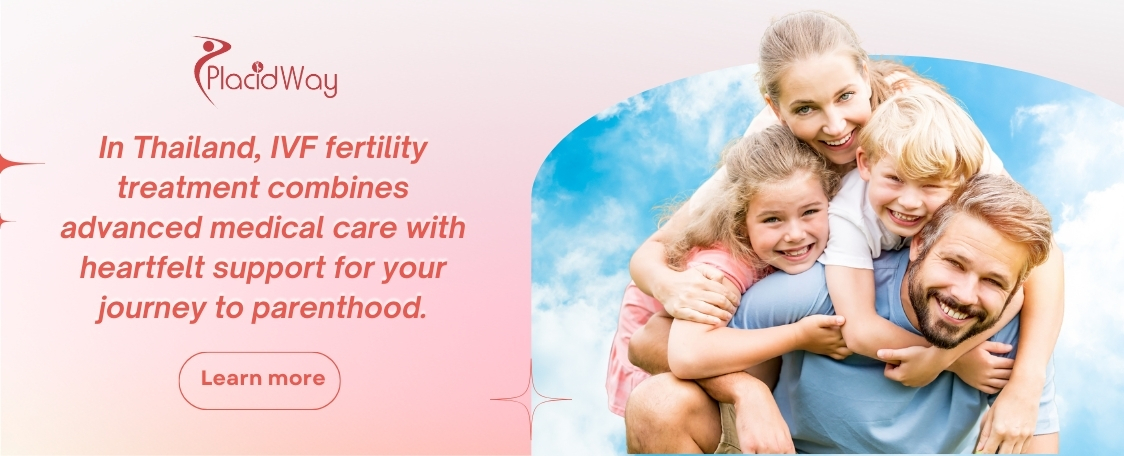




.png)
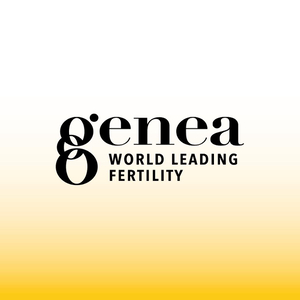
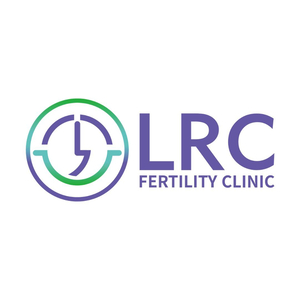



-Package-in-Bangkok-Thailand-at-First-Fertility-PGS-Center.jpg)
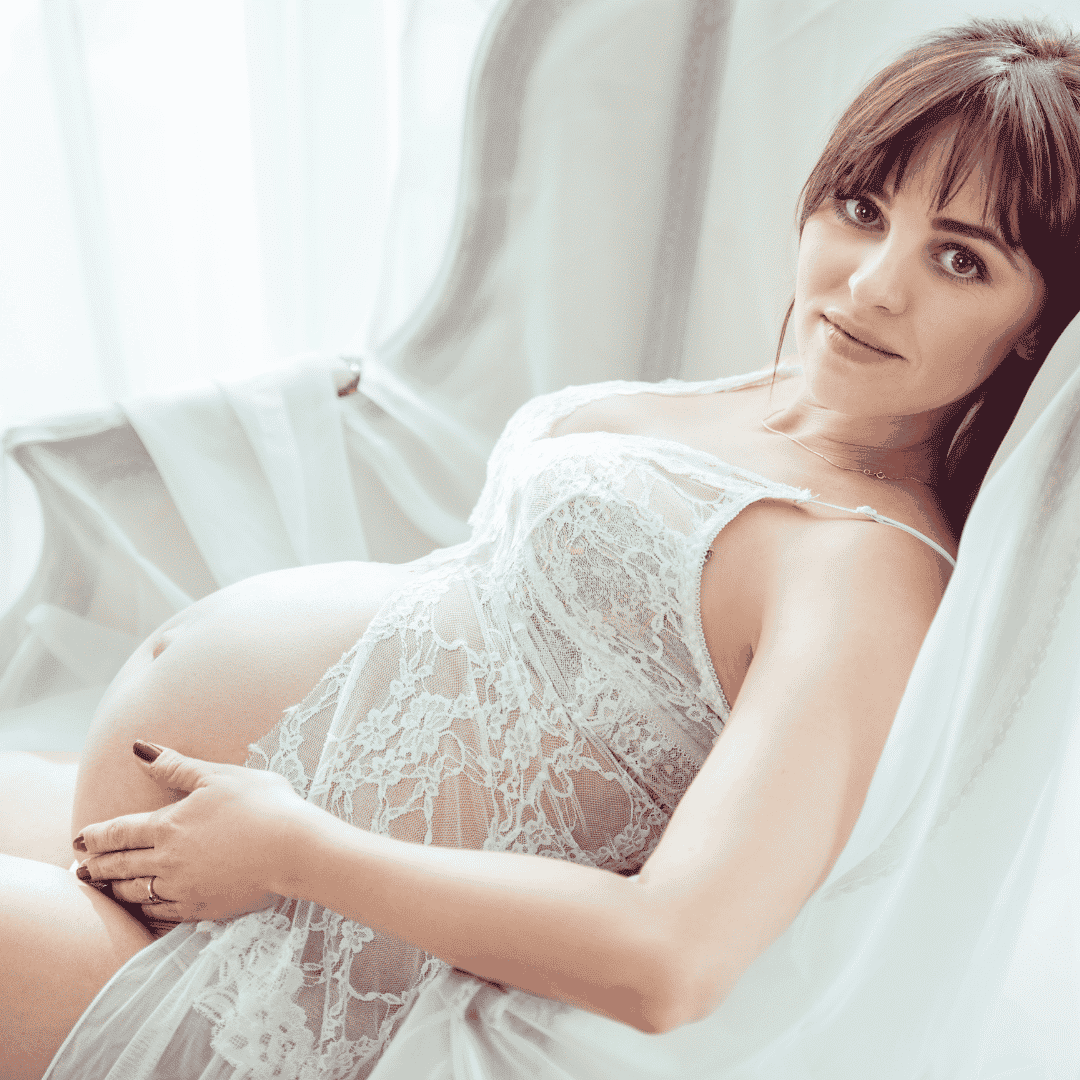

.png)



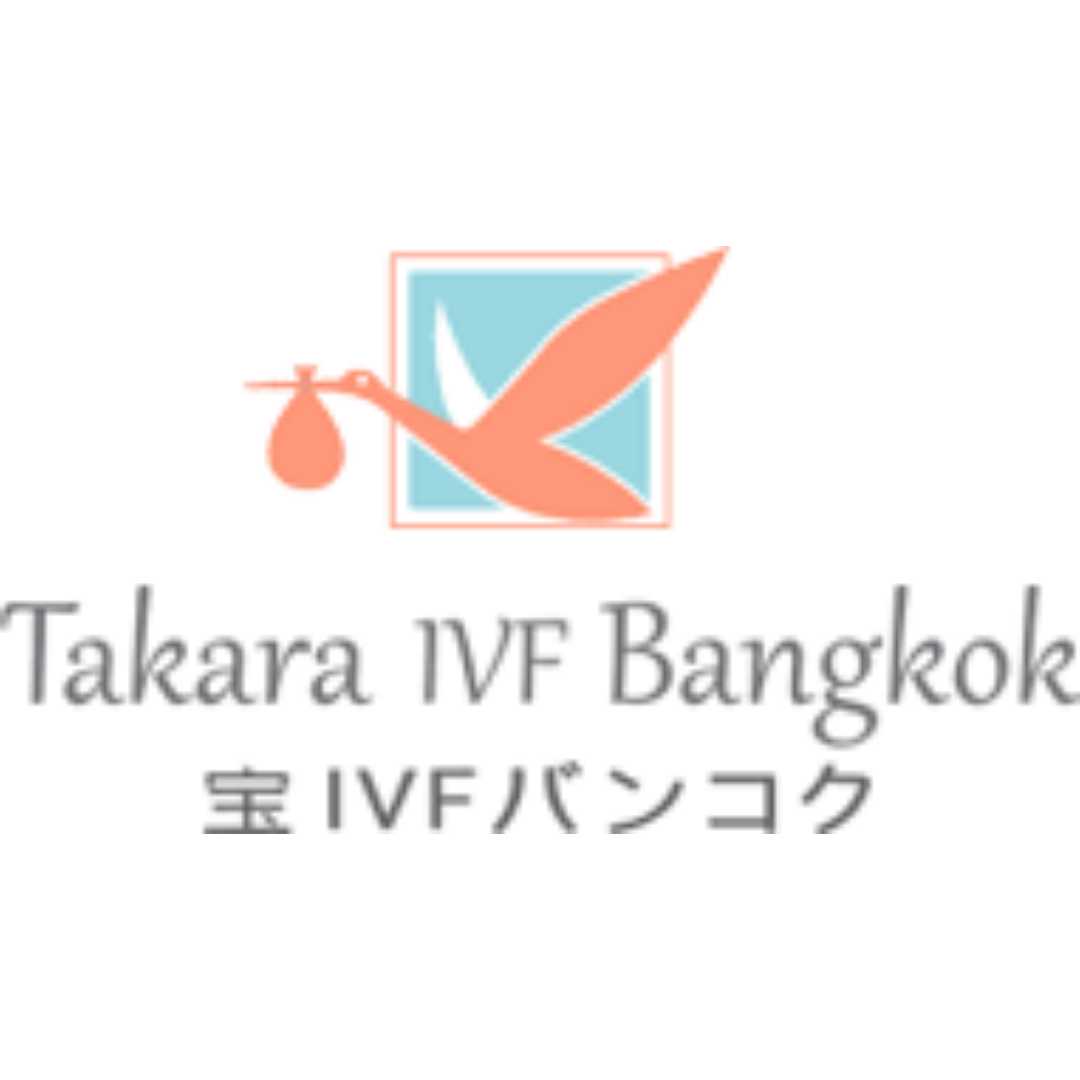
.png)
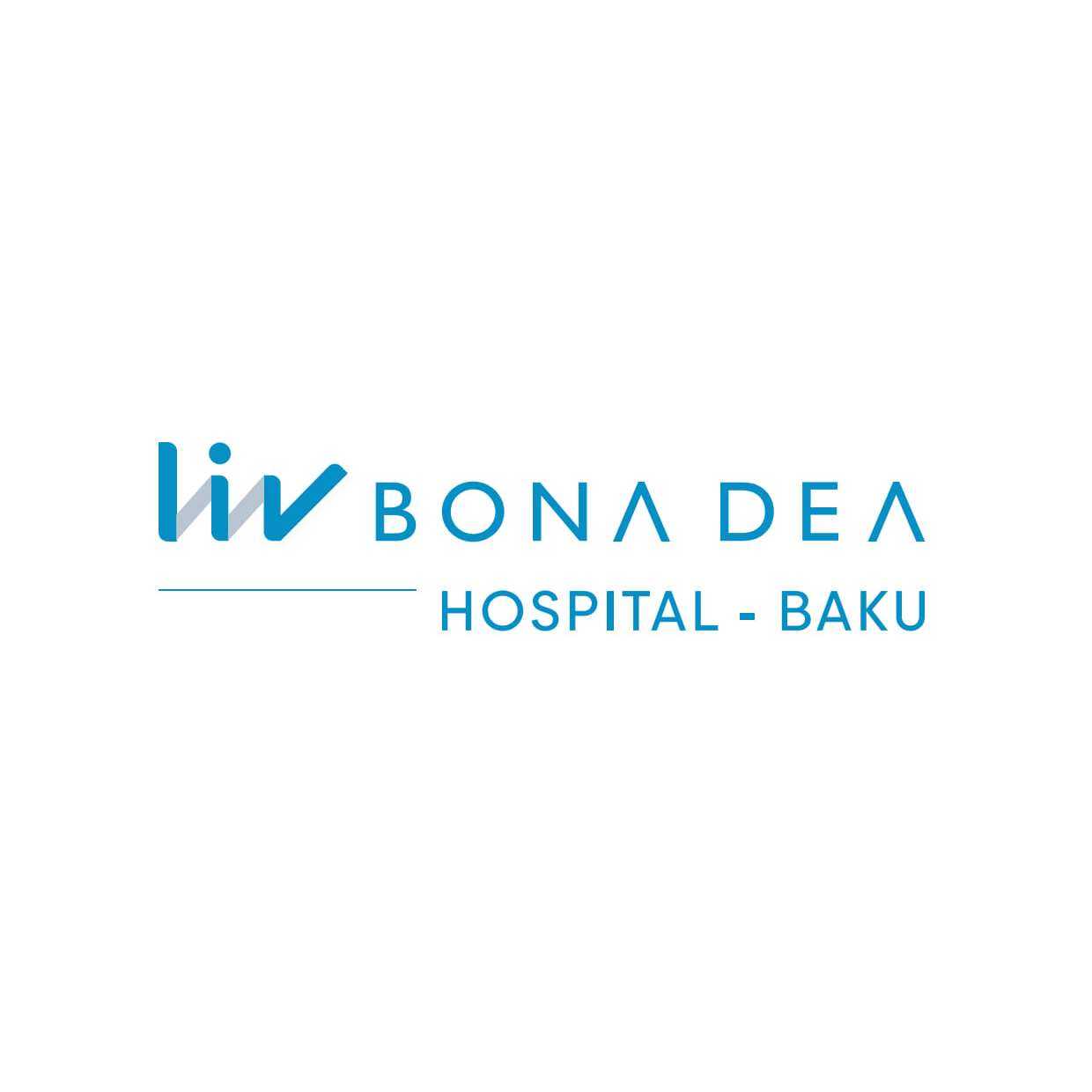



Share this listing